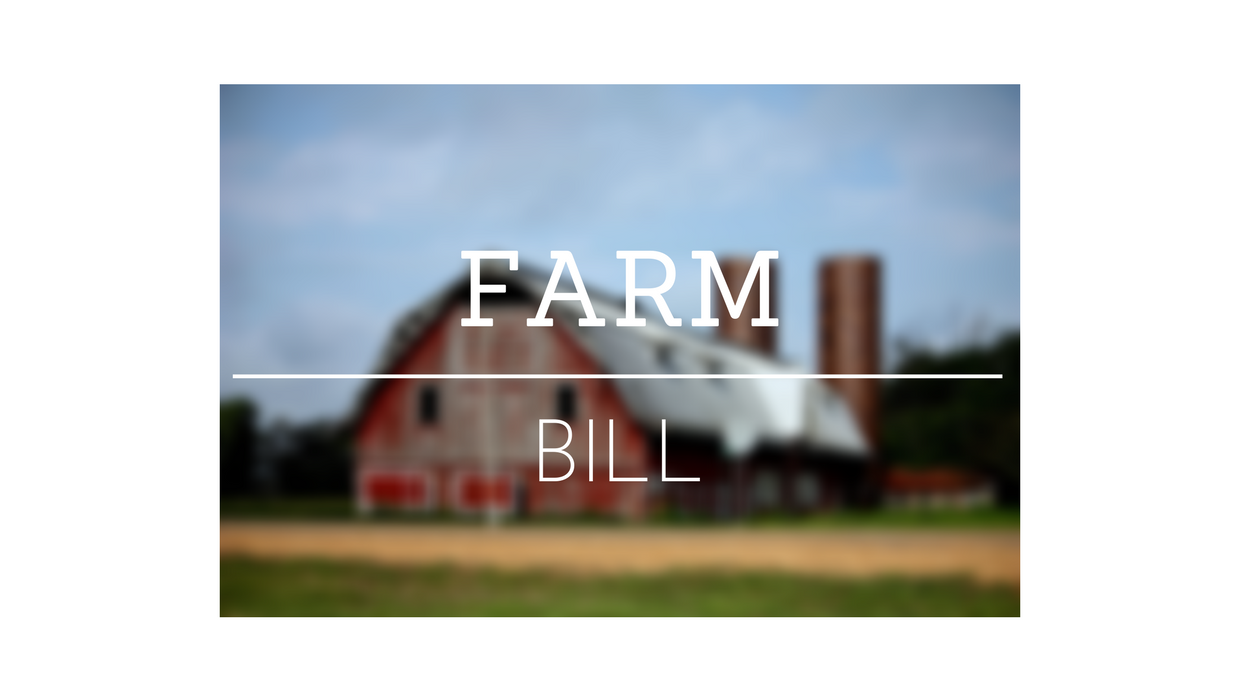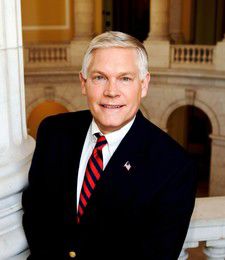The House Agriculture Committee April 18 passed out of committee the 2018 farm bill. The legislation passed on a party-line, 26-to-20 vote.
Democrats spent most of the 5-½ hour business meeting expressing sharp opposition to introducing new work requirements for approximately 6 million of the 45 million recipients of Supplemental Nutrition Assistance Program payments.
Upon passage, Chairman Mike Conaway, R-TX, said the vote, “was about America’s farmers and ranchers. It was about a better future and greater opportunities for SNAP recipients. It was about fulfilling an obligation to lead, rather than standing on the sidelines.
“I’m disappointed that my Democrat colleagues have turned their backs on America’s heartland, that they’ve chosen partisan politics over the three years of bipartisan work in this committee. Democrats halted talks over their objection to requiring work-capable adults to either find employment or receive free training for 20 hours per week.
“Yet, despite this turn of events, I remain hopeful. When House Democrats pushed a partisan farm bill that raised taxes in 2008 over Republican objections, Republicans worked alongside Democrats to fend off hostile amendments aimed against the legislation on the House floor and worked in conference committee to achieve a bipartisan farm bill. I am hopeful Democrats will not hold the nation’s farmers and ranchers hostage in this process over the SNAP work and training requirements, which will provide SNAP beneficiaries not just a benefit, but a better future that only a job can provide.
“But we’ll continue fighting, we won’t settle for the status quo—because America needs a farm bill. America deserves a farm bill. And I look forward to taking this vote to the people’s House—to debating these policies on the floor and to sharing our vision with the American people. We have cleared this hurdle and will deliver a strong, new farm bill on time.”
Ranking Member Collin Peterson, D-MN, spoke at the opening of the meeting, saying, “This is a flawed bill that is the result of a bad and nontransparent process. I oppose it and urge my colleagues on the committee to oppose it as well. More than nine months ago, we began discussions on a bipartisan farm bill. I saw this process as a way to work collaboratively and produce a work product where so many in this town have fallen victim to politics.
We wanted to get to a bipartisan bill. In our discussions, we were able to find common ground on quite a few areas but as anyone who has been through this before knows—and I’ve been through a few farm bills—nothing is agreed to until everything is agreed to.
“But to be a bipartisan bill, the bill has to be bipartisan in every title. Both parties must have input and give and take on all parts of the bill. I told the chairman in our first meeting in December that because of how Republican leadership handled SNAP amendments in 2013, my Democrats would not trust anything that appeared to be driven by ideology. He told me verbatim that he wouldn’t jam me on SNAP, and yet here we are.”
Peterson then highlighted areas within the nutrition title he said went too far and that committee Democrats would not be able to support, the most egregious, Peterson said, was the proposed work requirements within SNAP.
“The chairman told me that was the one non-negotiable provision, after months of my warnings about this type of approach. Remember, this is the ideological crusade that killed the bill in 2013. Either Chairman Conaway has chosen not to negotiate, or he was told by his leadership not to negotiate on one of the most significant parts of the farm bill,” Peterson said.
“I didn’t walk away. We didn’t walk away. We were pushed away by an ideological fight I repeatedly warned the chairman not to start. I’ve been here for 28 years and I’ve never walked away; not as chairman or as ranking member.”
Peterson also said there are concerns beyond nutrition issues, such as baseline funding for animal disease prevention, the Organic Research Initiative, and the Beginning Farmer and Rancher Development Program.
“There’s no mandatory funding for scholarships at 1890 institutions, and $500 million from the Rural Energy for America Program was eliminated as well as killing the energy title,” Peterson said. “Folks were looking for funding for citrus greening research and doubling our market access dollars. They’re raising concerns about the program consolidation in Title II, having no baseline for small watershed program and the decrease in the baseline in the out years. Even if we could miraculously fix the nutrition title, members still have other issues with the bill.”
Peterson also questioned Conaway’s strategy of moving forward on a markup when Senate Agriculture Committee Chairman Pat Roberts, R-KS, and Ranking Member Debbie Stabenow, D-MI, had issued a response to the release of the House bill reaffirming their commitment to a bipartisan bill.
“What are we doing here? Is this half-baked effort what passes for bipartisanship in our chamber? We used to be able to get stuff done, but the way the chairman has gone about this is turning friends into enemies,” Peterson said.
While Democrats offered no amendments, Conaway introduced “on bloc” group of Republican amendments. Perhaps, Rep. Roger Marshall, R-KS, sponsored the most interesting amendment to area producers that would permit farmers and ranchers to receive 75 percent of the U.S. Department of Agriculture’s established "total allowable cost" upon demonstrating that a fence has been destroyed in a qualifying event. This change will allow producers to receive Emergency Conservation Program resources sooner and will also simplify the administration of the program for Farm Service Agency employees.
Marshall said in a release, “As we watch wildfires again burn across Kansas and Oklahoma this week, it brings back unfortunate memories of the large fires we experienced just over a year ago that many producers are still rebuilding from. While the USDA’s response to help producers recover has been good, it is important that we take time to also identify ways to improve for future disasters.
“I’ve met with wildfire victims, county, state and national USDA staff, and producer organizations. Together we discussed the challenges from every level, and this amendment helps all involved in the recovery process.”
In the midst of the debate, former chairman Frank Lucas, R-OK, still the fourth-ranked Republican on the committee, addressed the committee hearing room saying, “the product we start with now…may not exactly look like the product that arrives at the President of the United States’ desk.
“If we are going to get a bill on the books by the first day of October, we have to take a step forward, then we can address the issues on the floor. Let’s keep working.”
With that Lucas perhaps said the line of the day, acknowledging Conaway’s situation.
“Mr. Chairman, I’m kind of happy to be sitting two chairs over.”
Larry Dreiling can be reached at 785-628-1117 or [email protected].



